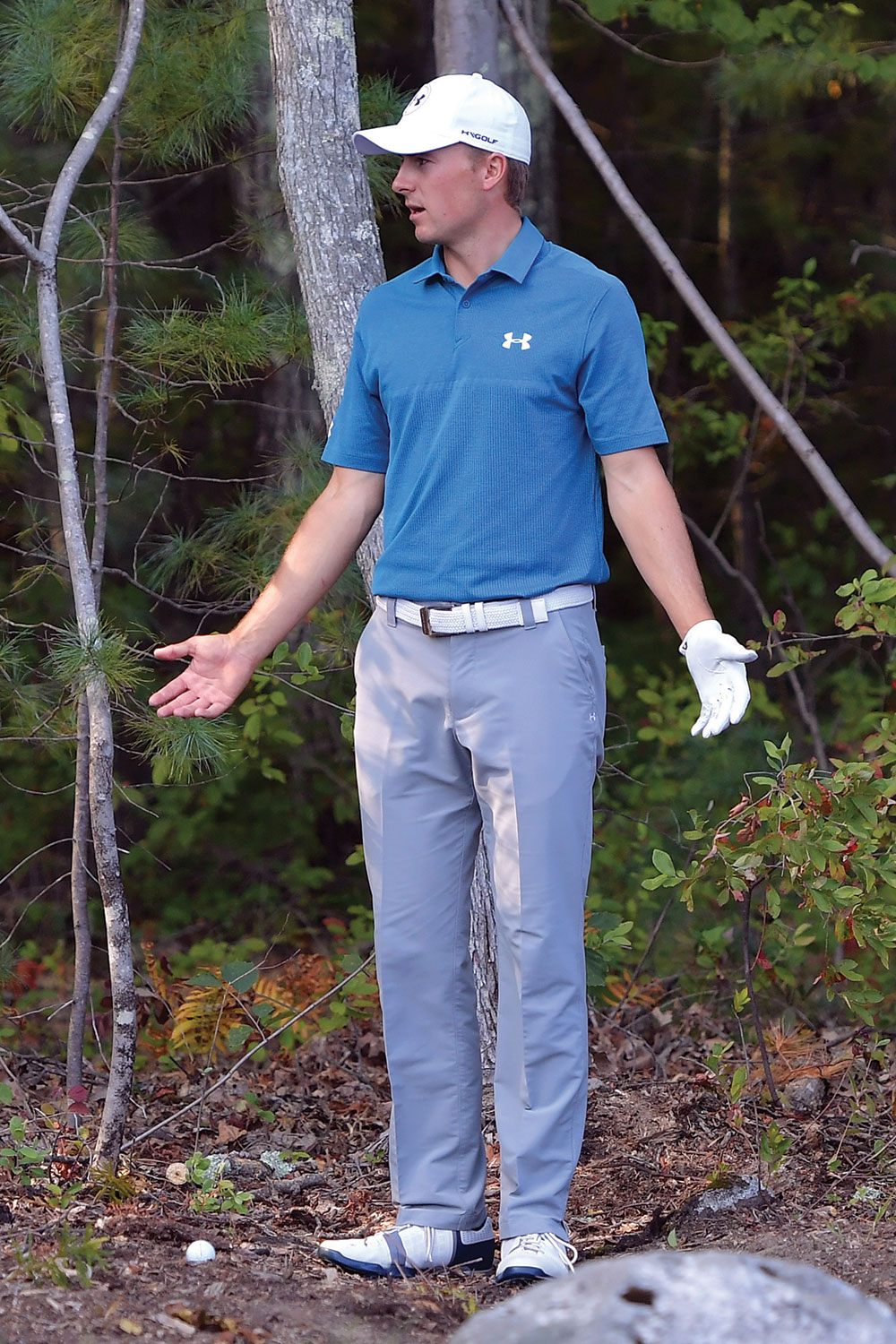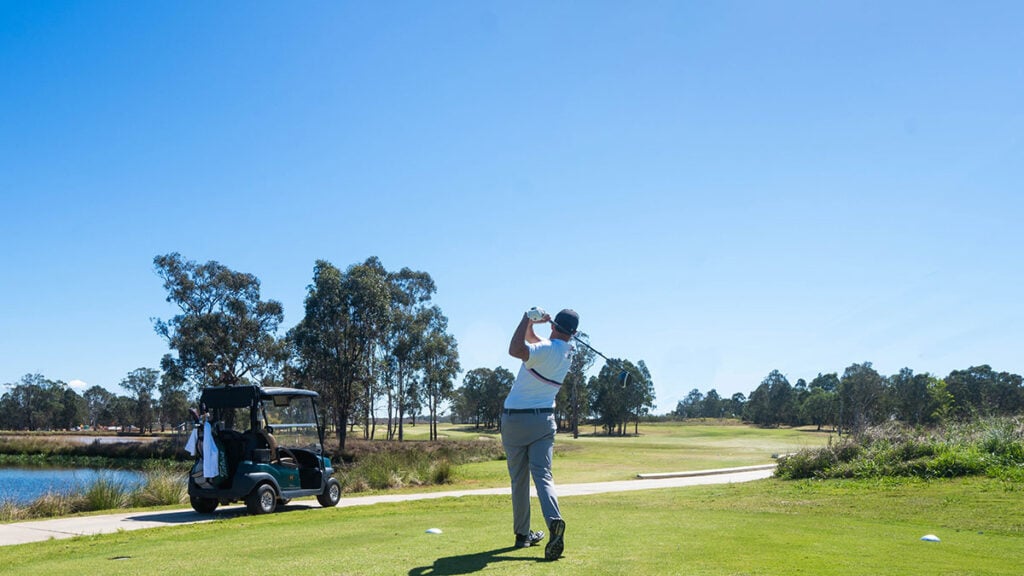IF YOU’RE fortunate enough to be in Sydney this month for the Australian Open, I contend you can save shots in your own game by watching Jordan Spieth at work.
The defending champion owns a grit factor that no other current player has [see “Where Jordan Spieth is showing true greatness”,]. And whereas we everyday golfers might marvel at the raw power of Jason Day and the elegant force of Adam Scott and think it impossible to emulate, Spieth’s shrewdness can very much be replicated.
 Two years ago, I had the always-enjoyable experience of being seated at the same table as Geoff Ogilvy at the annual Australian Golf Writers Association dinner, held by tradition on the Saturday night of the Australian Open. Ogilvy had played alongside Spieth for the first two rounds of that Open and, as usual, Jordan’s game appeared scratchy in every place except the scorecard. I asked Ogilvy what it was about Spieth’s game that makes him so resilient.
Two years ago, I had the always-enjoyable experience of being seated at the same table as Geoff Ogilvy at the annual Australian Golf Writers Association dinner, held by tradition on the Saturday night of the Australian Open. Ogilvy had played alongside Spieth for the first two rounds of that Open and, as usual, Jordan’s game appeared scratchy in every place except the scorecard. I asked Ogilvy what it was about Spieth’s game that makes him so resilient.
The 2006 US Open champion didn’t need to ponder his answer; he knew it already. “Whatever score he shoots, it’s always the best score he could have shot,” came the typically succinct-yet-detail-rich Ogilvy reply.
A day later, Spieth came within a Matt Jones lip-in on the 72nd green of possibly winning the central leg of a Stonehaven treble, despite not exhibiting anywhere near the fireworks of his scintillating 2015 global campaign. The fact he was still in the mix at the end was the more remarkable feat.
It’s the intangible every golfer craves: the ability to find a way to contend with less than your best. Spieth is proof that, even in what is a power-laden game at the professional level, sometimes in golf the mouse can eat the cat.
‘Spieth is proof that even in a power-laden game, sometimes
in golf the mouse can eat the cat.’
As we watched during the closing stages of the British Open this year, Spieth is never out of the game even when you’re certain he is. He has the uncanny knack of conjuring the unthinkable right when you think he’s toast. He even appears to thrive on the Houdini-esque nature of the theatre he conjures. It’s a quality that seems to be gifted rather than created; you either have it or you don’t, right? Maybe. But there’s something gratifying about stealing a birdie or par that really shouldn’t have been.
Like many followers of Fox Sports’ coverage of the US PGA Tour, I first watched Spieth when he impressed as a 16-year-old amateur at the 2010 Byron Nelson Championship. He finished 16th that week, a result I had to look up. What I don’t have to venture online to retrieve, however, is the memory of an outrageous greenside flop shot Spieth holed along the way. It was the first illustration in an endless gallery of artful escape acts.
In the past seven years I have grown to admire the Texan and his guile partly because he plays a (vastly) better version of my game. I learned by playing a super-tight golf course and didn’t really grow physically until I was 16 or 17. I was a little kid with a swing to match and had to be clever with a wedge and putter in order to compete. My game today is in dire need of some dedicated practice time, but some of those traits remain. My attitude has long been that golf shots increase in value the closer to the hole you are, and I’ve always drawn a certain pleasure from beating other golfers by playing ‘ugly’ – scraping and scratching pars that never looked like being pars.
Recently I played a round with some friends where I came to the last hole with the match on the line. A lengthy uphill par 5, the hole wasn’t really in my ‘wheelhouse’, a situation exacerbated when I hit a horrible short hook off the tee that finished on a grassy bank. Two swings later, my ball was in a bunker 50 metres short of the green – never a good shot to face – while my mates were comfortably aboard the green in three. From there I hit the kind of shot TV producers drool over: a hot, spinning splash that landed a pace or two past the flag, hopped forward and spun back about 15 feet, entering the cup at perfect holing speed.
I smiled, and I bet Spieth would have too had he seen the shot – and the way I’d played the hole. So get along to The Australian Golf Club this week and hope that some of the young American’s tenacity rubs off on you. Your opponents will hate you for it.




